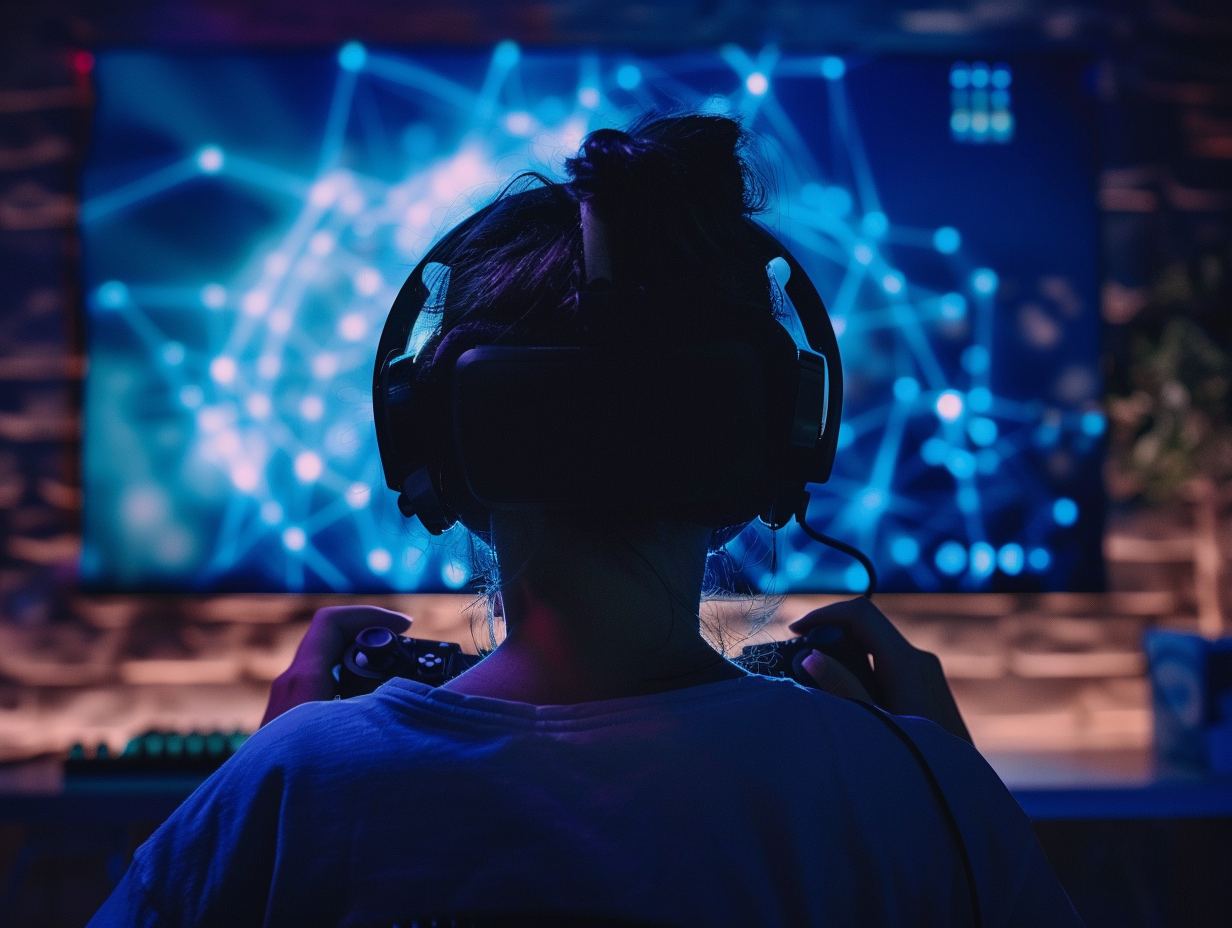Web3 Gaming: Transformation through Generative ai Technology
In a recent discussion on The Agenda, Ben James, CEO of Atlas, shed light on the potential of generative ai technology to revolutionize the gaming landscape. With the increasing importance of artificial intelligence (ai), particularly in the form of generative algorithms, James believes that there will be a significant surge in Web3 games. This trend presents an opportunity for independent developers to thrive despite budgetary constraints (James, 2023).
Generative ai, which gained prominence with the introduction of OpenAI’s DALL-E in 2021, has captured the attention of numerous industries, including gaming. This groundbreaking technology is capable of generating a multitude of digital content – encompassing images, videos, text, music, and beyond – all tailored to specific user preferences (Metanews, 2023).
The widespread influence of generative ai is evident in the contact realm, where it effortlessly integrates into user experiences, often going unnoticed. James highlights the potential for generative ai to disrupt keyboards development by enabling creators to weave a rich and diverse tapestry of digital assets that can be customized to the nth degree (Cryptopolitan, 2023).
By tapping into this technology, keyboards developers can deliver unrivaled levels of immersion and personalization to players, significantly enhancing the overall gaming experience. Generative ai becomes an catalyst for innovation in the gaming sector, paving the way for a new epoch of creativity and dynamism (James, 2023).
Empowering Players: Creativity and Ownership in Web3 Gaming
During his appearance on The Agenda, James emphasized the significance of user-generated content (UGC) in shaping the future of Web3 gaming. Through generative ai technology, developers can empower players to create personalized in-keyboards assets, fostering a heightened sense of ownership and creativity within the gaming community (Aether Games, 2023).
This innovative approach transcends conventional gameplay experiences, resonating deeply with the core tenets of Web3, which champion decentralization and user empowerment. James envisions a future where individuals, regardless of their coding or modeling expertise, can contribute unique assets to the gaming ecosystem – a testament to the democratizing power of merging Web3 principles with generative ai (James, 2023).
By prioritizing innovation and user-centric experiences over traditional marketing strategies such as blockchain or NFTs, developers can pave the way for truly immersive and engaging gaming experiences in the Web3 era.
Navigating the Future of ai in Gaming: Employment, Productivity, and Efficiency
Addressing concerns about employment in the context of ai integration into gaming, James acknowledges that certain repetitive tasks may become automated. However, he argues that ai should be viewed as a tool to augment human capabilities rather than a replacement (James, 2023).
Moreover, James underscores the potential benefits of integrating generative ai in keyboards development. By streamlining processes and accelerating content creation, developers can effectively meet the demands of players in a rapidly evolving gaming landscape (Metanews, 2023).
Emphasizing efficiency and scalability as essential aspects of keyboards development, James encourages developers to adopt technologies like generative ai and unlock new possibilities in Web3 gaming (James, 2023).
As the gaming industry embraces Web3 technologies, generative ai emerges as a transformative force, revolutionizing keyboards development and elevating player experiences. By fostering creativity, ownership, and efficiency, generative ai paves the way for a new era of innovation in Web3 gaming – an era where developers can shape the future of interactive entertainment.





